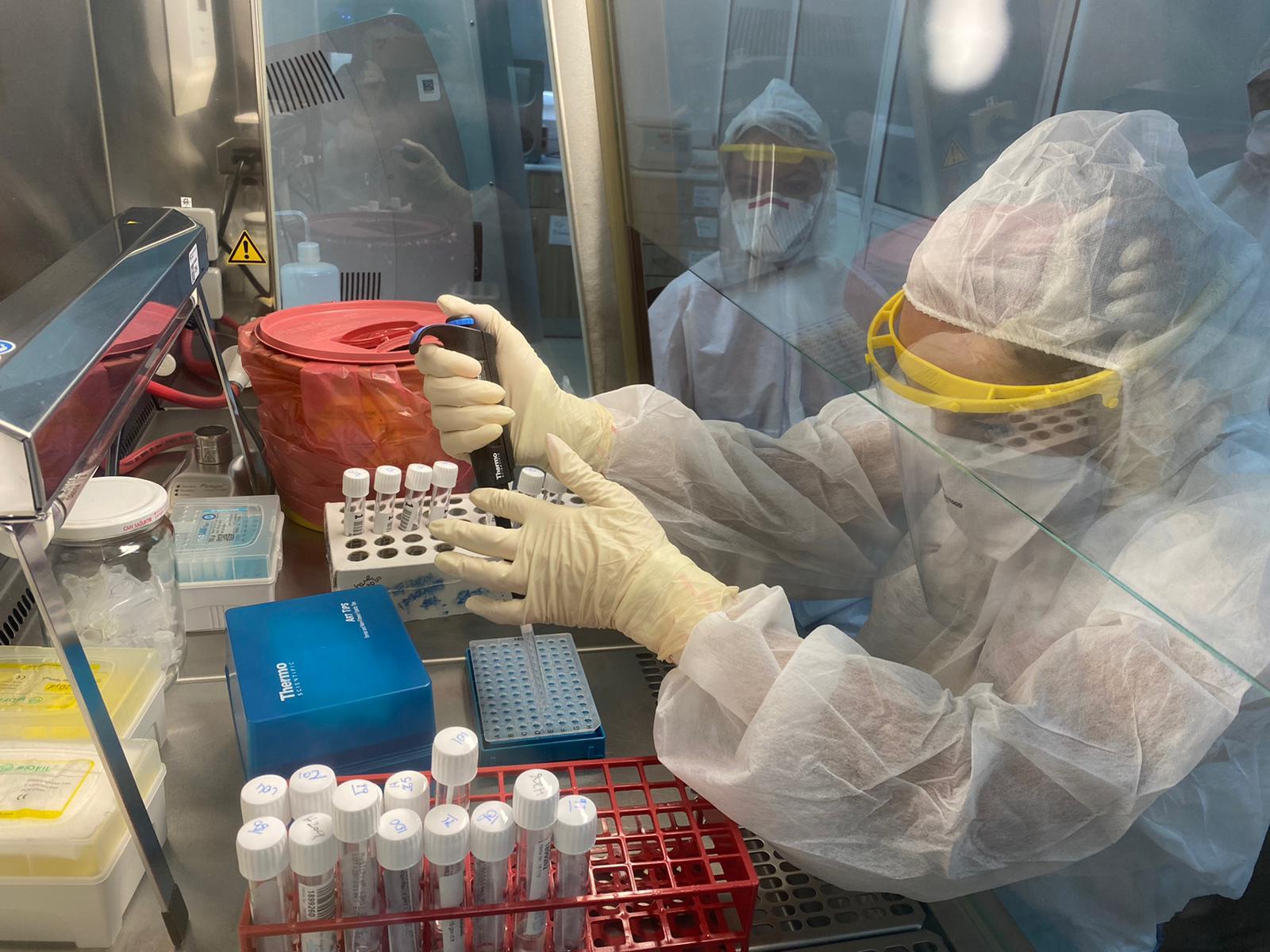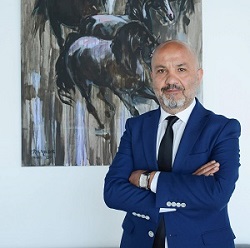
99.6% Antibody Response to Sinovac Vaccine was detected
The Near East University Experimental Health Sciences Research Institute (DESAM), which continues scientific studies to determine the effects of the COVID-19 vaccine on the course of the pandemic, has launched a comprehensive research project to detect the spike antibody levels that develop after the vaccine. During the project, the antibody level formed in healthcare workers who have both doses of Sinovac’s Coronavac vaccine will be monitored regularly for a year. The study titled “Evaluation of Antibody Response in People Who Have Been Applied With COVID-19 Vaccine” is carried out by Assoc. Prof. Dr. Umut Gazi, Prof. Dr. Kaya Süer, Assist. Prof. Dr. Emine Ünal Evren, Assist. Prof. Dr. Hakan Evren, Specialist Ayşegül Bostancı, Assoc. Prof. Dr. Emrah Ruh, Prof. Dr. Nedim Çakır and Prof. Dr. Tamer Şanlıdağ.
Within the scope of the project, 527 healthcare professionals working for the Near East University Hospital and Dr. Suat Günsel University of Kyrenia Hospital voluntarily participated in the research project measuring the antibody levels developed in healthcare professionals after vaccination. Within the scope of the research, antibody measurements of a total of 527 people, 172 males and 355 females, aged between 27-72, were performed. It was determined that 525 of them developed a high rate of antibodies.
No people infected from COVID-19 after the second dose
One of the striking results of the research, which raised hope with the high antibody level detected, was that there were no COVID-19 cases among those who had the second dose of the Coronovac COVID-19 vaccine. All of the PCR tests applied by Near East University DESAM Research Institute on the 15th day of the second dose to 64 people randomly selected from among the vaccinated people were negative.
Post-vaccination antibody level is promising
According to the recommendations of the Abbott company, which produces the test kit used in the study (SARS-CoV2 IgG II Quant), the antibody level must be above 50 AU / mL in order to evaluate the effectiveness of the vaccine positively. A lower antibody level is considered negative.
According to the results announced by the DESAM Research Institute, the lowest antibody level was determined as 86.3 AU / ml in 172 men who were tested for antibodies after vaccination. The highest antibody value was found to be 6.613 AU / ml. The average level of antibodies in men after vaccination was 1.332 AU / mL. Although the antibody levels that develop in women are higher than in men, there is no significant gap between them. Within the scope of the study, the average antibody level in 355 women was found to be 1,436 AU / mL. Thus, an antibody formation well above the 50 AU / mL level was observed in both men and women.
The research results announced by the Near East University DESAM Research Institute also revealed that the amount of antibodies developed after vaccination varies according to age. 474 of the 527 people tested for antibodies within the scope of the project are 54 years and younger. The number of people aged 55 and over is 53. According to the results, the average antibody level developed after vaccination in the group of 54 years and under was determined as 1,468 AU / ml. In the 55-year-old and above group, the mean antibody level was found to be 817 AU / ml. In individuals under the age of 30, the antibody level increases up to 1,800 AU / ml. This shows that the level of antibodies produced by the vaccine is directly relevant to age. However, the fact that the antibody level formed in all age groups is well above 50 AU / ml shows that the vaccine can be effective in all age groups.

Stating that they will monitor the development of antibodies and infections in people who have the Sinovac Coronavac COVID-19 vaccine during a one-year research project, Near East University DESAM Research Institute Director Prof. Dr. Tamer Şanlıdağ said that they obtained important scientific findings as a result of the first studies they carried out within the scope of the project. Emphasizing that, according to the results, they determined that the applied COVID-19 vaccines provide high antibody production in both women and men. Prof. Dr. Şanlıdağ commented that “There are no COVID-19 cases among those who have the second dose of the vaccine, and the high level of antibodies gives hope in terms of the effectiveness of the vaccine and the course of the pandemic.”